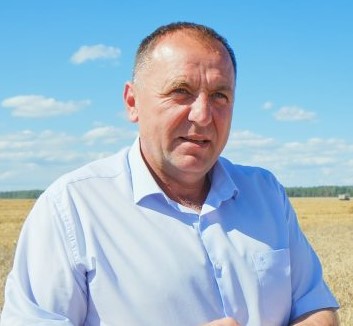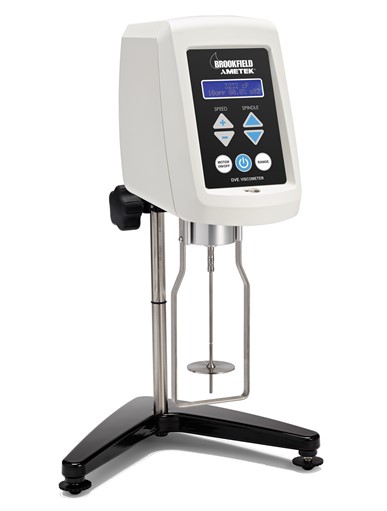Cleaning fodder, grain, livestock fattening. Bartosz set tasks for the Vitebsk region

 PIONEER MEIZHENG BIO-TECH (5 in1) JC1165 / Rapid tests for the determination of the residual amount of halofuginone, flavomycin, novobiocin, flunixin, dexamethasone / prednisolone in milk, whey
PIONEER MEIZHENG BIO-TECH (5 in1) JC1165 / Rapid tests for the determination of the residual amount of halofuginone, flavomycin, novobiocin, flunixin, dexamethasone / prednisolone in milk, whey PIONEER MEIZHENG BIO-TECH (5 in1) JC0871/ Rapid tests for the determination of the residual amount of β-lactams, tetracyclines, chloramphenicol, streptomycins, ceftiofur in milk, whey.
PIONEER MEIZHENG BIO-TECH (5 in1) JC0871/ Rapid tests for the determination of the residual amount of β-lactams, tetracyclines, chloramphenicol, streptomycins, ceftiofur in milk, whey.
August 19, Vitebsk. Harvesting of grain and leguminous crops, fodder procurement, construction of new dairy farms, livestock fattening - these and other issues were discussed on August 19 at a working meeting in the Vitebsk Regional Executive Committee. The meeting was chaired by Minister of Agriculture and Food Sergei Bartosh, BelTA has learned.
The HEAD of the relevant department focused the northern region on improving some indicators. "First of all (of the Vitebsk region. - approx. BELTA) it is necessary to tighten up the forage harvesting, grass harvesting and harvest corn in a timely manner, because, as was announced by the committee's specialists, 60% of corn will be harvested after the optimal time, and this is a loss of quality, nutritional value, which entail not only poor results in animal husbandry, but also the case, which is given great attention in the republic," Sergey Bartosh stressed.He asked about the construction of dairy farms in the Vitebsk region, next year it is planned to build 10 such facilities. "It is necessary to study the concentration of livestock production, raising calves (calves), fattening livestock. And what the head of state paid attention to should be transferred from those who cannot grow to those who can grow," the minister recalled. According to him, the Vitebsk region needs to work closely on this issue.
Among the ways to resolve the issue, Sergei Bartosh named the concentration of livestock in those farms that can grow this livestock and get a good result. "And the next step is to return the resulting heifers to farms that produce MILK after they have been raised. Thus, there will be a way out - getting more calves and a better result in milk production," he added. "When building facilities, it is necessary to take into account the provision of human resources. The larger the complex, the less people are needed, and people who want to work and can get a decent wage should be given the opportunity."
According to the Committee for Agriculture and Food of the Vitebsk Regional Executive Committee, 201 thousand hectares of grain and leguminous crops have been harvested in the region, which is 76% of the harvested area. 491 thousand hectares have been harvested with an average yield of 24.5 q/ha. In comparison with the previous year, the yield turned out to be significantly lower (on the same date it was 31.6 centners per hectare), the indicator was affected by severe drought.
The sowing of winter rapeseed continues at a good pace. Today, 44.9 thousand hectares have been sown, while the target is 60 thousand hectares, the farmers plan to complete the entire plan in a couple of days. Well, after the completion of this work, they will start sowing winter grains.
As for fodder, 109 thousand hectares were harvested by the second mowing. For a conditional head, 9.51 centners of fodder units were harvested. The gap with last year's level, which now stands at 4.96, is gradually narrowing. 108 fodder procurement teams have been created and are working in the region.
Read together with it:
- В 2025 году возрожденный молокозавод в Иванове наладил стабильный выпуск 13 новых видов продукцииЗа год на молокозаводе «РумелкоАгро – Молоко» в Иванове выпустили на рынок 13 видов продукции, в том числе шесть новых продуктов – два вида творога и четыре вида йогурта – за последний месяц. В среду, 22 октября, губернатор Станислав Воскресенский ознакомился с производством новых продуктов и обсудил с руководством предприятия планы по дальнейшему развитию переработки молока. «Завод, как мы и гово...
- Lukashenko spoke out against simple solutions for the Vitebsk region and actions along the path of least resistance.October 24,Vitebsk . At a meeting in the Vitebsk region, Belarusian President ALEXANDER LUKASHENKO spoke out against simple decisions and taking the path of least resistance, BelTA reports. The HEAD of state explained his demand using the example of agro-industrial associations previously created in the region. The president recalled that at the time, it was proposed to completely strip the indepe...
- Производство молока, инвестиции. Какие точки роста на пятилетку видит руководство Витебской области24 октября, Витебск. Инвестиции, модернизация в АПК, развитие молочного производства, туризм - на что будут делать ставку в социально-экономическом развитии Витебской области в предстоящей пятилетке, чтобы наверстать отставания от других регионов, на совещании с участием Президента Беларуси Александра Лукашенко рассказал председатель облисполкома Александр Субботин, передает корреспондент БЕЛТА. А...
- Более 100 центнеров кукурузы с одного гектара собирают липецкие аграрииНамолочены первые 100 тысяч тонн. Уборка кукурузы на зерно идет в 15 районах и округах. Это последняя из зерновых и зернобобовых культур, которую предстоит обмолотить липецким аграриям. В этом году под «царицу полей» отведено около 74 тысяч гектаров. На 20 октября текущего года с 12 тыс. гектаров собрано 125 тысяч тонн кукурузы при средней урожайности – 1......


























































